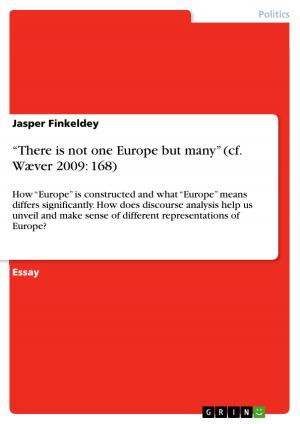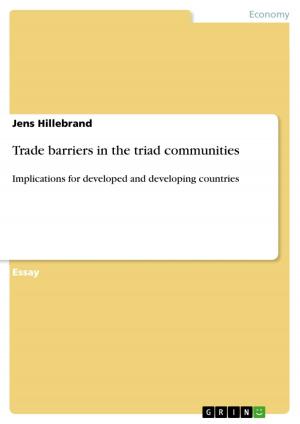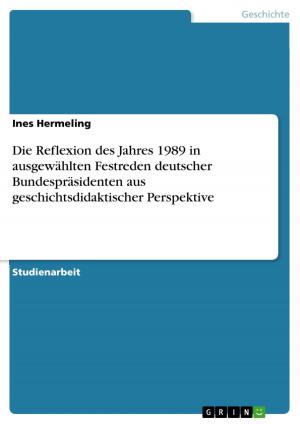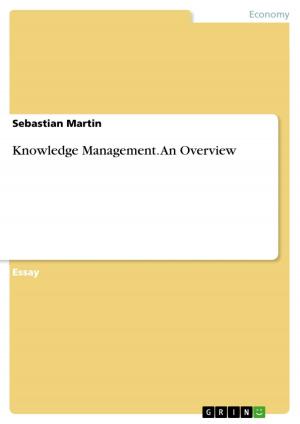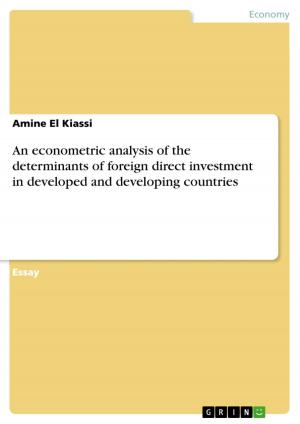Which was the most effective analysis of the early cold war period, NSC-68 or NSC-162/2
Nonfiction, Social & Cultural Studies, Political Science| Author: | Philipp Studt | ISBN: | 9783638487337 |
| Publisher: | GRIN Publishing | Publication: | April 8, 2006 |
| Imprint: | GRIN Publishing | Language: | English |
| Author: | Philipp Studt |
| ISBN: | 9783638487337 |
| Publisher: | GRIN Publishing |
| Publication: | April 8, 2006 |
| Imprint: | GRIN Publishing |
| Language: | English |
Essay from the year 2005 in the subject Politics - International Politics - Region: USA, grade: 72%, Lancaster University, course: POL 320 American Foreign Policy, 11 entries in the bibliography, language: English, abstract: In the period after the end of World War II, America struggled to find a sustainable, coherent strategy to address the Soviet threat. It is without doubt that both NSC-68 and NSC-162/2 were important documents of their time. It is the aim of this essay to examine the circumstances of their creation, their differences and ultimately, assess which was a more coherent and effective analysis of the early Cold War Period, placing particular emphasis on the perception of international order in the papers. NSC 68 was produced in 1949 by a study group from the Departments of State and Defense under the leadership of Paul Nietze. Its primary concern were the implications of the Soviet possession of the atomic bomb, the uncovering of the spy ring around Fuchs that had infiltrated the Manhattan Project, the recent creation of the German Democratic Republic and the fall of China to Communism. The paper rested on the premise that the decisive struggle in foreign affairs was between the United States and Soviet Russia, and that there could only be one winner. One of the main arguments put forward was that the totalitarian nature of Soviet Russia allowed nothing but an expansionist foreign policy, 'driven to follow this policy because it cannot (...) tolerate the existence of free societies.' According to the paper, the Soviets were motivated by 'a new, fanatic faith, antithetical to our own', seeking to 'impose its absolute authority over the rest of the world.' Wolfe makes the point inThe Rise and Fall of the Soviet Threatthat NSC 68 denied that the Russians were capable of acting like other great powers, unable to strike a balance between maximizing their power in some places and minimizing their losses in others, instead expanding everywhere driven by their internal character.3The policy of NSC 68 was, in its own terms, a 'policy of calculated and gradual coercion' in order to 'check and roll back the Kremlin's drive
Essay from the year 2005 in the subject Politics - International Politics - Region: USA, grade: 72%, Lancaster University, course: POL 320 American Foreign Policy, 11 entries in the bibliography, language: English, abstract: In the period after the end of World War II, America struggled to find a sustainable, coherent strategy to address the Soviet threat. It is without doubt that both NSC-68 and NSC-162/2 were important documents of their time. It is the aim of this essay to examine the circumstances of their creation, their differences and ultimately, assess which was a more coherent and effective analysis of the early Cold War Period, placing particular emphasis on the perception of international order in the papers. NSC 68 was produced in 1949 by a study group from the Departments of State and Defense under the leadership of Paul Nietze. Its primary concern were the implications of the Soviet possession of the atomic bomb, the uncovering of the spy ring around Fuchs that had infiltrated the Manhattan Project, the recent creation of the German Democratic Republic and the fall of China to Communism. The paper rested on the premise that the decisive struggle in foreign affairs was between the United States and Soviet Russia, and that there could only be one winner. One of the main arguments put forward was that the totalitarian nature of Soviet Russia allowed nothing but an expansionist foreign policy, 'driven to follow this policy because it cannot (...) tolerate the existence of free societies.' According to the paper, the Soviets were motivated by 'a new, fanatic faith, antithetical to our own', seeking to 'impose its absolute authority over the rest of the world.' Wolfe makes the point inThe Rise and Fall of the Soviet Threatthat NSC 68 denied that the Russians were capable of acting like other great powers, unable to strike a balance between maximizing their power in some places and minimizing their losses in others, instead expanding everywhere driven by their internal character.3The policy of NSC 68 was, in its own terms, a 'policy of calculated and gradual coercion' in order to 'check and roll back the Kremlin's drive

